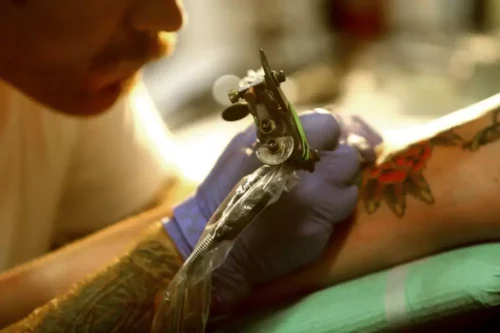Alcohol, Anxiety, and Depressive Disorders

If you’ve ever used alcohol to deal with feelings of depression, you may have found that after your buzz wears off, you’re left feeling even lower than before. Not helping matters is the fact that heavy drinking has increased in recent years, largely due to the coronavirus pandemic. But if you’re suffering from depression, think again before reaching for a drink. By Sarah Bence, OTR/LBence is an occupational therapist with a range of work experience in mental does alcohol make depression worse healthcare settings. If you have depression and drink too much alcohol, then you may be wondering if there are any treatments or lifestyle changes for someone in your situation.
- It lowers levels of GABA—making you feel less calm—and boosts glutamate, which increases anxiety.
- Kitley continues to use this fellowship as a resource while working on her sobriety.
- Researchers found that the 30,770 participants with depression reported having an average of three physical health conditions, while people without depression had an average of two.
- He says his drinking — and depression — “skyrocketed” at age 24 after his grandmother died.
- While alcohol might provide temporary relief, it often exacerbates depressive symptoms in the long run and creates a vicious cycle of alcohol use and worsening depression.
- Several studies suggest that military veterans are more likely to experience depression, post-traumatic stress disorder (PTSD), and misuse alcohol.
Addiction with Co-Occurring Mental Health Disorders
These psychological conditions are often intense enough to interfere with life functioning, and the symptoms are often recognized by physicians and other health care providers as serious enough to require treatment. When depressed or anxious alcohol-dependent people are asked their opinions about cause and effect, they often reply that they believe they drink in order to cope with their symptoms of sadness or nervousness. Other research has demonstrated a prospective relationship between depression and heavy alcohol use.

“I used alcohol to cope with feelings of panic, isolation, and sadness.”
Andrews expresses that this sets the stage for fatty liver disease, alcoholic hepatitis heroin addiction and, in the worst-case scenario, cirrhosis—where the liver is scarred beyond repair and its ability to function goes downhill. Alcohol, even in small amounts, can elevate blood pressure and weaken the heart muscle, leading to increased risk of heart disease, stroke and heart failure over time, says Lacey Dunn, M.S., RD, a functional medicine dietitian. So, if you’ve been winding down with a glass of wine in hopes of protecting your heart, the latest research suggests it may be doing more harm than good. If you drink a lot you are more likely to struggle with depressed feelings. Because of the complicated relationship between depression and alcohol use, Lurie says it’s best to address both at the same time through a specialized treatment program.
- You might feel depressed after drinking because alcohol itself is a depressant.
- Alcohol can affect the part of your brain that controls judgment and inhibitions.
- When you stop drinking, you might experience withdrawal symptoms like anxiety, irritability, or depression.
- It helps people understand events and thought processes that lead to depression and substance misuse.
Support groups
And if you are struggling with both depression and alcohol abuse, find a dual diagnosis treatment center that can help you make a full recovery from both disorders. Substance-induced depression is different from major depressive disorder and, by definition, should improve once a person stops consuming substances (such as alcohol). If you binge drink alcohol, your depression and anxiety may also worsen. Binge drinking is when you drink a lot of alcohol in one day — more than 8 units of alcohol per day for men and more than 6 units of alcohol per day for women, with 1 unit of alcohol being equal to half a pint. Drinking alcohol is a common social activity, but it’s important to do it in moderation to protect your physical and emotional health. Drinking too much alcohol – or turning to alcohol as a coping mechanism – can worsen symptoms of depression and make the condition harder to treat.

Vaillant (1995) has conducted a 40-year followup of 2 samples, one including more than 200 college men and the other including more than 450 blue-collar boys who were ages 11 to 16 at the time of the original study. Information was available on the subjects’ psychiatric symptoms and AOD-use patterns and problems, both at the time of enrollment into the study and at several points during the long-term follow-up. Despite finding that rates of alcohol abuse or dependence were relatively high in both samples, the researchers saw no evidence that preexisting depressive or anxiety disorders occurred at higher rates among those subjects who later developed alcoholism.
Follow us on social media
Now that you know the science, it’s hard to ignore that the pull to drink still lingers, even with the logical awareness of the consequences. After all, alcohol is deeply woven into our social celebrations, cultural traditions and even daily routines. But perhaps, for a moment, you may pause to reflect on your habits—how the last drink made you feel and how it might impact your health in the future. If you are considering cutting back, here are some simple, actionable steps you can take to limit or completely avoid alcohol. The liver, in particular, bears much of the brunt, as it’s responsible for breaking down alcohol and removing toxins from the body. Over time, alcohol can pile on the pressure, causing the liver to become overloaded and inflamed.
Could Drinking Be Fueling Your Depression?
Then, try distracting yourself to help take your mind off how you feel. It often feels very tempting (and easy) to keep drinking until you feel better, especially when you have less access than usual to more helpful coping methods. Increased anger might lead you to pick a fight with a loved one, for example, while extreme sadness or self-loathing could lead to intense depression symptoms. If you tend to rely on alcohol to ease anxiety in social situations, for example, you might never address the underlying causes of your discomfort.

It helps people understand events and thought processes that lead to depression and substance misuse. However, for the best results, your doctor will likely treat them together. Likewise, if you’re diagnosed with one of these conditions, your doctor may ask about symptoms of the other.
- Second, the possibility that a longer term anxiety or depressive disorder exists in an alcoholic must always be considered.
- Though it’s likely that physical ailments worsen mental health, it’s clear from the design of this study that having depression does put a person at a greater risk of developing physical conditions as they age, Fleetwood told Health.
- Similarly, an alcoholic who experiences repeated panic attacks or other anxiety symptoms requires intervention for the anxiety, regardless of the cause.
- It’s more likely to worsen negative mood states, along with physical health.
Product Reviews

Specifically, a growing body of research supports the use of motivational interventions for addressing substance use problems among patients with comorbid psychiatric and substance use disorders. Psychiatric treatment attendance is strongly related to clinical outcomes (e.g., Green & Pope, 2000). Nearly one-third of people with major depression (or major depressive disorder) also have alcohol use disorder. Research shows that depressed children are more likely to have problems with alcohol a few years down the road. Also, teens who’ve had a bout of major depression are twice as likely to start drinking as those who haven’t. And if you start drinking at an early age, your risk of alcohol use disorder is higher.













